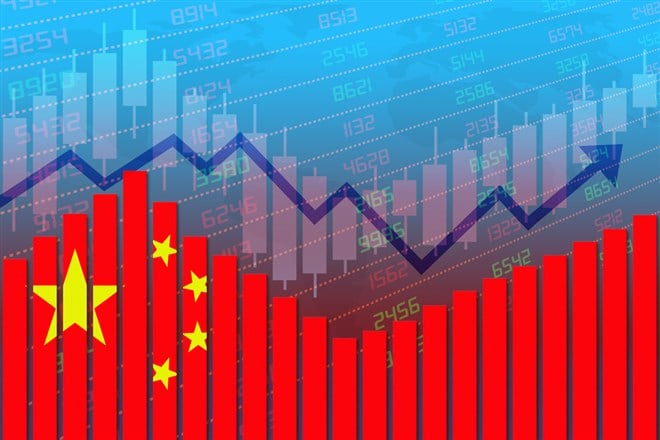
Chinese Internet stocks are behaving like an unruly group of children rather than marching together in unison. E-commerce platform PDD Holdings Inc. (NASDAQ: PDD) is among large-cap price leaders. Meanwhile, large-cap search and ad stalwart Baidu Inc. (NASDAQ: BIDU) also has potential, consolidating well above its 50-day average.
Gaming platform NetEase Inc. (NASDAQ: NTES) is forming a potentially constructive consolidation as it holds well above its late October low of $53.09.
All these are showing technical strength, but none are forming exactly the same trajectory which you sometimes see in stocks from a particular region or industry.
What’s next for these stocks amid growing geopolitical tensions and a disappointing gross domestic product forecast?
Among China-based large caps, search and advertising giant Alibaba Group Holding Limited (NYSE: BABA) is the laggard, declining 15% in the past month.
Given the recent reopening of China's economy, the outlook for Chinese stocks has largely been rosy.
However, analysts are re-evaluating their previous assumptions in early March after China issued a lower-than-expected forecast for gross domestic product growth.
The Chinese government is targeting GDP expansion of 5% this year, slightly below analysts’ consensus estimates.
Some analysts were more reserved in their expectations. For example, Goldman Sachs, in a November report, pegged GDP growth at 4.5%.
Its analysts parsed the year by halves, saying, “Beneath the full-year growth acceleration, the Chinese economy will likely display a distinct “two halves” next year. Our growth forecast is notably below consensus in H1 but significantly above in H2. This is due to our belief that the initial stage of China’s reopening may be negative to growth, with Covid cases surging and population mobility temporarily declining, similar to the reopening experience of several other East Asian economies.”
Goldman Sachs added that it expected China’s policy to remain accommodative in the first half of the year, meaning it expects the government to refrain from increasing interest rates in an effort to spur economic growth.
Of course, when it comes to China, there are always possible headwinds for investors. The latest development is an increase in tensions between it and the U.S., as China’s foreign minister Qin Gang said the two countries may be going down a path of “conflict and confrontation.”
So where does that leave Chinese stocks, as a group?
Index Decline Steeper Than S&P 500
For a clue, you can look to indexes tracking Chinese stocks. For example, the iShares MSCI China ETF (NASDAQ: MCHI), is benchmarked to an index of large- and mid-cap companies available to investors outside of China. That ETF has been trending lower in recent weeks, more or less simultaneously with the S&P 500, but at a steeper rate. It’s down 3.88% in the past month, versus the S&P 500’s one-month decline of 1.30%.
The largest holding in the market-cap-weighted MCHI ETF is the online media conglomerate Tencent Holdings Limited (OTCMKTS: TCEHY), whose market capitalization is $432.35 billion.
The stock has a solid three-month return of 21.53%, due to a strong rally that began in late October before the stock sputtered in early February.
For the large-cap consumer-facing techs, analysts have the following earnings growth or decline expectations for 2023:
- PDD: +13%
- Baidu: +11%
- Alibaba: -7%
- NetEase: -80%
- Tencent: -16%
Keep in mind: All those companies are expected to remain profitable this year, with Alibaba, NetEase, and Tencent showing year-over-year earnings declines.
Is Rally Doomed To Fade?
Although no one is currently disputing that China is set for growth this year as the economy reopens, the announcement of a somewhat subdued GDP growth rate is causing some analysts to rethink whether that recent rally is doomed to fade.
There are plenty of marketwide ramifications: On March 6 and 7, commodities skidded on concerns that China would purchase fewer raw materials than previously expected.
In addition, there’s risk in China’s real estate sector, which has faced debt problems. U.S.-driven sanctions against the chip industry could also damper growth but could just as easily cause a resurgence in China’s homegrown chipmaking industry.
Of course, investing in any country is always fraught with economic and geopolitical concerns. At this juncture, none of the big China-based techs are at appropriate buy points and may in fact decline further while the market digests the latest round of news. The next round of earnings reports may also send stocks sharply in one direction or another.














